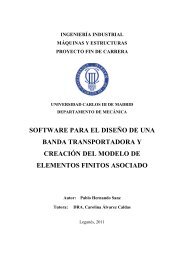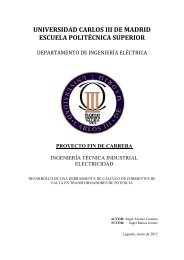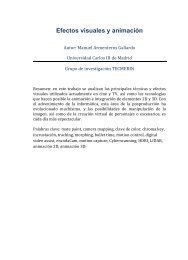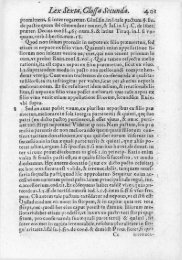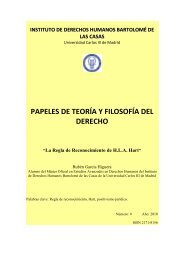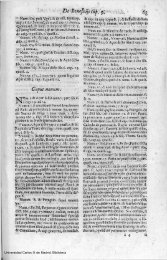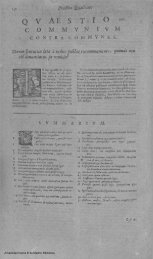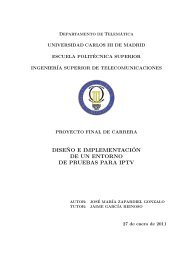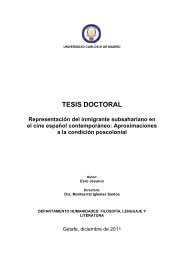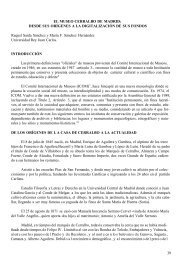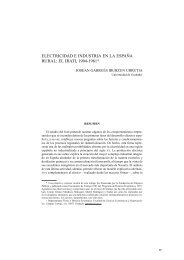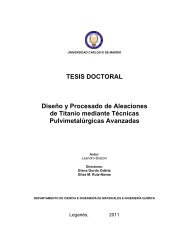Land tenure inequality, harvests, and rural conflict ... - e-Archivo
Land tenure inequality, harvests, and rural conflict ... - e-Archivo
Land tenure inequality, harvests, and rural conflict ... - e-Archivo
Create successful ePaper yourself
Turn your PDF publications into a flip-book with our unique Google optimized e-Paper software.
not one of exploitation <strong>and</strong> resistance, but of empowerment, changing expectations,<br />
<strong>and</strong> large changes in the social organization of labor <strong>and</strong> l<strong>and</strong> markets, especially in<br />
towns controlled by the Spanish Socialist Party <strong>and</strong> the UGT (Collier, 1987: 15).<br />
These historical contributions focus on the drastic political changes associated with<br />
democratization <strong>and</strong> its effects on the mobilization <strong>and</strong> polarization of opposing<br />
interest groups (Shubert, 1990: 101; Tébar Hurtado, 2006: 22). Detailed studies by<br />
Cobo Romero (1992) <strong>and</strong> Grupo de Estudios Agrarios (1995) stress the radical<br />
overturn in relations of power, especially where Socialist mayors got elected<br />
(Macarro Vera, 2000: 62). Although overactive mayors could be suspended of their<br />
duties by prefects, in April 1933 there was a Socialist mayor in 18 per cent of towns<br />
in Seville, 32 per cent of towns in Córdoba, <strong>and</strong> 35 per cent of towns in Jaén (PSOE,<br />
AH-24-6, 29 August 1934: 8). According to this hypothesis, mobilization <strong>and</strong> <strong>conflict</strong><br />
were highest where Socialist militants led peasants to confrontation, the mobilization<br />
of l<strong>and</strong>owners, <strong>and</strong> polarization. Rather than stressing rank-<strong>and</strong>-file mobilization, in<br />
this view, institutional change <strong>and</strong> democratization sparked <strong>conflict</strong> top-down from<br />
the political parties <strong>and</strong> unions to the peasants.<br />
However, a study by Enrique Montañés (1997) on the province of Cádiz,<br />
where Socialists were weak <strong>and</strong> anarchism strong, also describes a similar overturn in<br />
power relations <strong>and</strong> stresses collective bargaining <strong>and</strong> the <strong>conflict</strong>s associated with it.<br />
In the main agricultural towns of the province of Seville <strong>and</strong> Córdoba, anarchosyndicalism<br />
was the norm <strong>and</strong> remained active until 1934 despite selective repression<br />
since the summer of 1931. Socialists were particularly powerful in Jaén <strong>and</strong> in the<br />
sierra towns of Córdoba, whereas the CNT controlled most of the large agro-towns of<br />
the Guadalquivir plain.<br />
10




